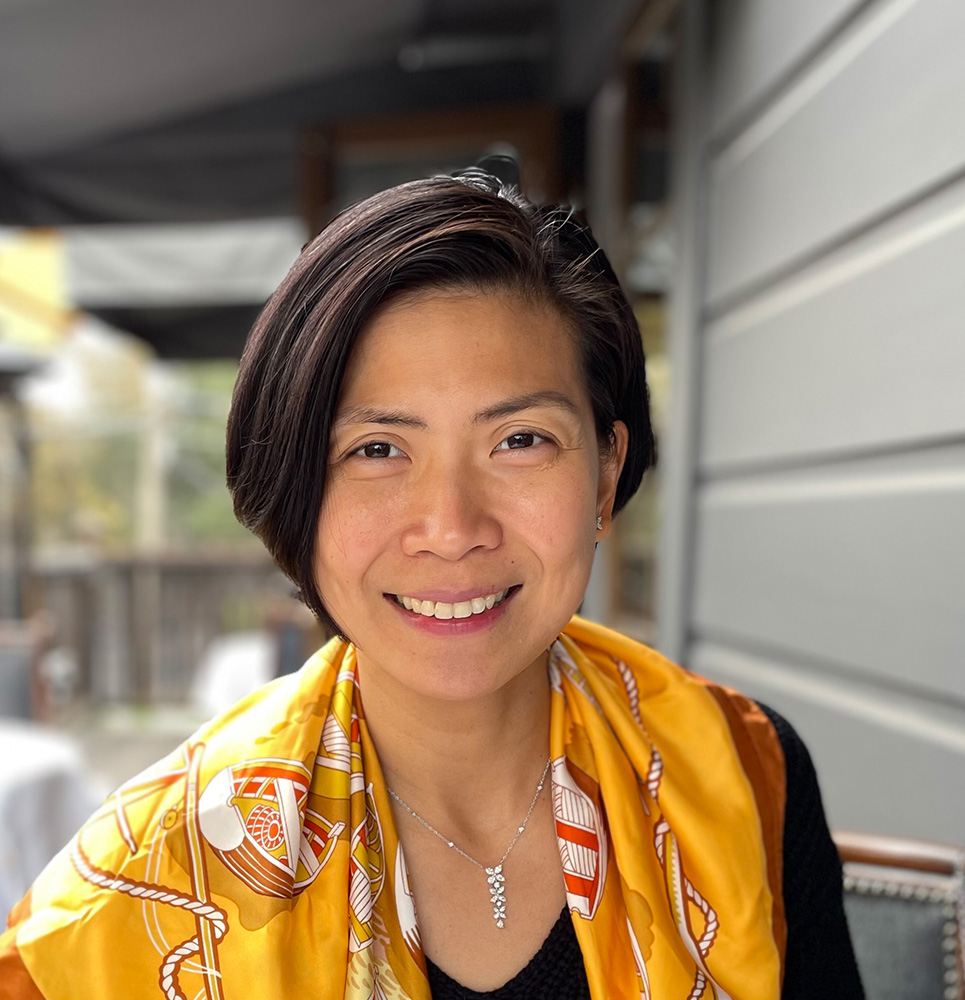Dr. Maria Cristina Samaco-Zamora

Nina is an Assistant Professor of Psychology at USF. She is also the faculty coordinator of the AAPI Center’s Peer Counseling program, set to launch in March 2025. This month, we invited Nina to share more about her teaching experiences and journey to USF!
Connect with Nina: Faculty Page
Tell us about your background, research interests, and how you arrived at USF:
I was born and raised in the Philippines and went to Ateneo de Manila University, a Jesuit university in Metro Manila. I competed in fencing and air rifle shooting in college, which gave me the opportunity to use psychology in enhancing my performance. I had studied psychology as a way to pursue medical school but I ended up pursuing further studies in Psychology instead.
After completing my MA in Counseling Psychology, I tried to work in the corporate setting as the sports marketing head for adidas Philippines. I had a great time but recognized it wasn’t what I wanted to do long term. I went back to Ateneo to begin a PhD program in Clinical Psychology. I got to try on many hats during my final stint at the university. While I was studying, I taught in the undergrad; worked in the newly opened Fr. Bulatao Center for Psychological Services; and served as the Assistant Director for Marketing in the University Athletics Office. In 2013, I completed my PhD and published my dissertation on a grounded theory of Filipino wellness. This was what sparked my interest in cultural psychology.
I decided to move to San Francisco in the fall of 2013, joining my then-fiancée, who was at the time completing his MFT studies at USF. In 2015, we were attending Barrio Fiesta (Kasamahan’s annual Pilipino Cultural Night) when I was introduced to a YPSP faculty member He shared about an immediate opening for an adjunct faculty in the psychology department. I have since then been teaching at USF, moving to a full time role in 2021.
What does identifying as AAPI mean to you?
For me, being AAPI is being open to the intersection of the many cultures within the group. I believe it is important to remain curious and open. I recognize the privilege of being at USF and in California during this challenging time.
What do you hope the Peer Counseling program and AANAPISI can bring to campus?
I hope the Peer Counseling program can increase opportunities to support AAPI students. While CAPS and other campus resources are available, I recognize that sometimes we just need someone with shared experiences to listen to us. While identifying our peer counselors, it was our hope to have as much representation across the AAPI community as possible to help our students seeking services feel connected. We collaborated with campus partners to offer training opportunities, such as suicide prevention education, as a way to continue developing relationships and pathways for referrals when necessary.
What is something you want others to know about AAPI communities?
The AAPI community is very diverse. Holding common identities with someone in this community also means our beliefs and experiences can be very different.